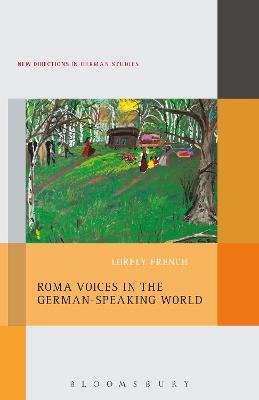New Directions in German Studies
1 total work
The Roma are Europe’s largest minority, and yet they remain one of the most misunderstood and underrepresented. Scholarship on the Roma in German-speaking countries has focused mostly on the portrayal of “Zigeuner/Gypsies” in literature by non-Roma and on persecution during the Nazi period. Rarely have scholars examined the actual voices of Roma to glean their perspectives on their social interactions and customs. Without such studies the Roma appear passive in the face of their long and troubled history.
With a basis in theories of intersectionality, subalternity, and cultural hybridity, Roma Voices in the German-Speaking World rectifies this image of passivity by analyzing autobiographies, folktales, and novels by Roma, thereby promoting a better understanding of the multifaceted and multifarious cultures alive today in Germany, Austria, and Switzerland. In documenting their voices, Roma writers unveil the large extent to which their personal lives, their social interactions with other Roma and non-Roma, and the images they project of their values and traditions are highly influenced by gender and ethnicity.
With a basis in theories of intersectionality, subalternity, and cultural hybridity, Roma Voices in the German-Speaking World rectifies this image of passivity by analyzing autobiographies, folktales, and novels by Roma, thereby promoting a better understanding of the multifaceted and multifarious cultures alive today in Germany, Austria, and Switzerland. In documenting their voices, Roma writers unveil the large extent to which their personal lives, their social interactions with other Roma and non-Roma, and the images they project of their values and traditions are highly influenced by gender and ethnicity.
